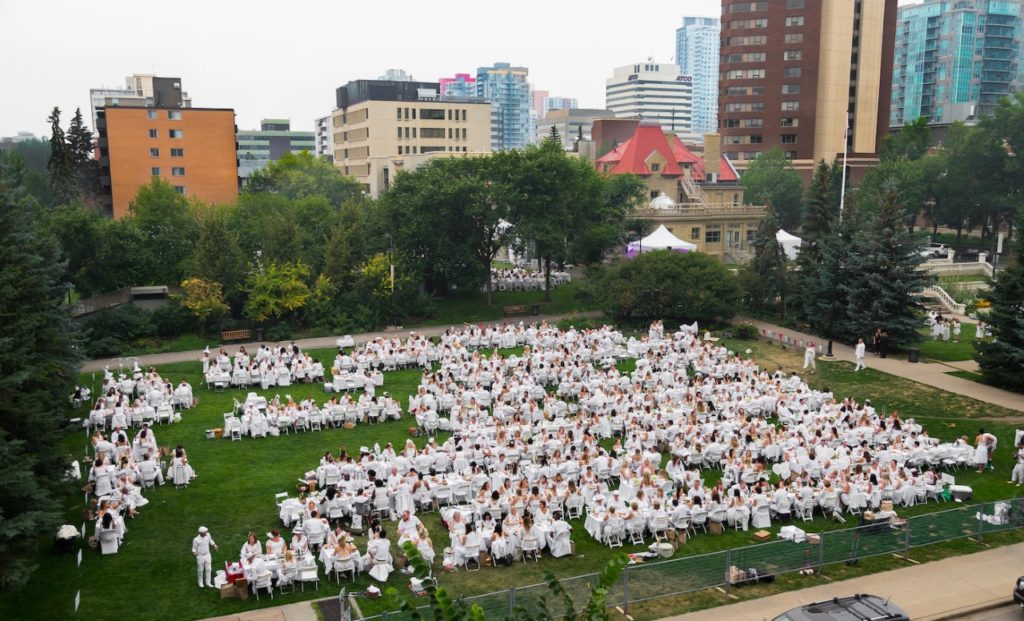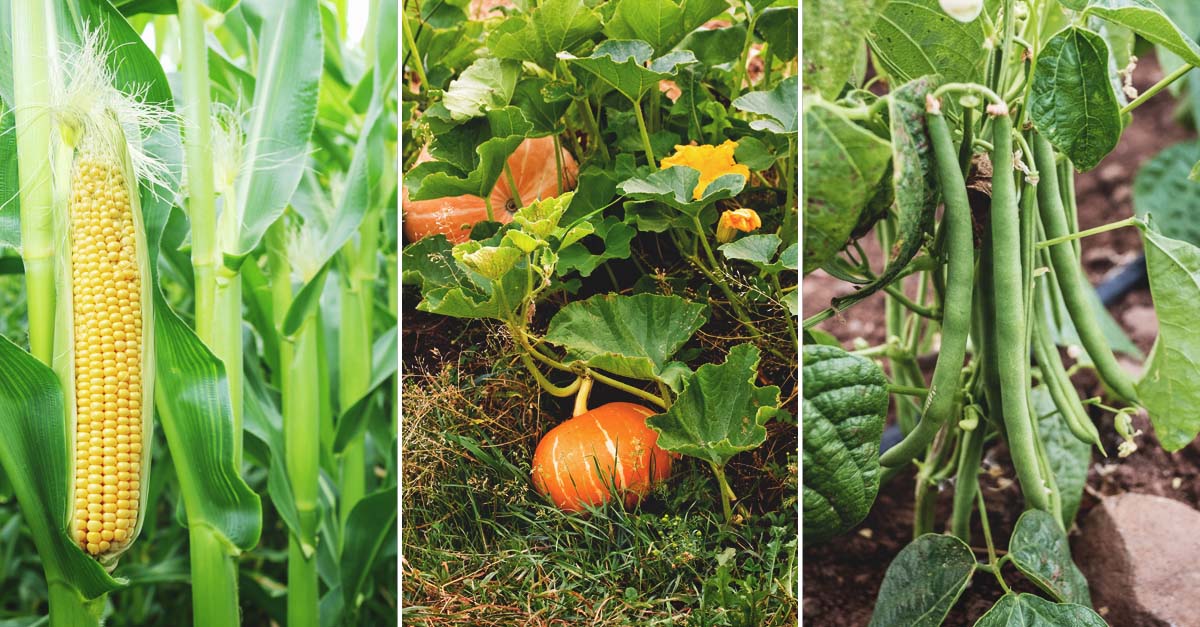From a Historical Garden to a Heritage Garden
Lougheed House is one of the only surviving examples of a grand sandstone prairie mansion. Originally built in 1891 by James and Isabella Lougheed. The house and gardens are located in central Calgary, Alberta on 2.8 acres of land and is one of our Passport Places that you can visit for free with your National Trust membership.
Lougheed House is located on the traditional Treaty 7 territory of the Blackfoot confederacy: Siksika, Kainai, Piikani, as well as the Îyâxe Nakoda and Tsuut’ina nations. This territory is home to the Métis Nation of Alberta, Region 3, within the historical Northwest Métis homeland.

View of Lougheed house and garden
The ownership of the house and gardens has changed a few times over the past 100 years. From being repossessed in the Depression for non-payment of taxes, to the Red Cross owning the house in 1947, to it eventually being sold back to the City of Calgary in 1978.
The gardens were restored and reopened to the public in 1999. Lady Isabella Lougheed, the original owner of the house named the gardens Beaulieu in 1891, which means a “beautiful place” in French. The gardens are still called Beaulieu today and they offer visitors a large community green space, a heritage garden with hollyhock roots dating back to the original 1892 plants, and an edible garden.

Large Picnic gathering of Calgarians on the Community Green Space
Perhaps one of the interesting highlights is the Three Sisters Garden, an edible garden that aims to illustrate Indigenous traditions. From this garden, visitors can learn about vegetables and other edibles that they can then grow in their own urban and inner-city gardens.

Picture of the “Three Sisters” corn, squash and beans
In a number of Indigenous communities, corn, squash, and beans are called the “Three Sisters.” The benefit of growing corn, beans, and squash together is that each of these plants helps to support each other. The corn stalk acts as a trellis for the beans. The beans add nitrogen to the soil that keeps the corn stalks strong against winds, and the wide leaves of the squash shades the ground, keeping the soil moist and helps to reduce the growth of weeds. The Three Sisters garden is an example of sustainable gardening. These 3 crops can be stored throughout the winter months for food and the seeds can be preserved for the next year’s growing season.
Indigenous oral folklore about the Three Sisters, which has been passed down through the generations says that the beans, corn, and squash were actually three Native American maidens. The three, while very different, loved each other very much and thrived when they were near each other.
Lougheed House continues to bridge the traditions of the past with new endeavours for the future. Through gardening programs, community events on the grounds, and the dedication of both volunteers and visitors, Lougheed House will continue to grow.
Lougheed House is open Friday to Sunday 11:30 am to 3:00 pm. Beaulieu Gardens (free admission) is open daily from 7 am – 11 pm
707 – 13 Avenue SW, Calgary, AB, T2R 0K8
www.lougheedhouse.com
The Lougheed House is part of the Trust’s Passport Places program, a National Trust membership benefit that provides free access to 100 historic places in Canada, as well as 1000+ National Trust places abroad. Become a member today!
This article and images were written with the following sources:
- Heather Rhoades, A Three Sisters Garden – Beans, Corn & Squash, www.gardeningknowhow.com, published March 31, 2021
- Lougheed House, Calgary’s Historic Home of Cultural Happenings | Lougheed House
- Leela Viswanathan , The Three Sisters as Indigenous Sustainable Agricultural Practice, published , June 15, 2023, https://indigenousclimatehub.ca

